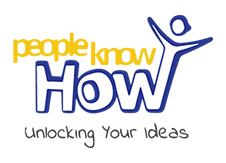This article employs a human rights based framework to investigate the preparedness of parents and carers in engaging digitally with their child. By examining the digital literacy of both parents and children, the roles parents often take on in digital engagement is shown to reflect an outdated understanding of parent digital identity. Furthering the problem, COVID-19 has revealed and exacerbated gaps in parental and child digital literacy. However, it also revealed the power of community mobilisation in supporting parents to engage with their child’s increased digital learning. Considering this, this article affirms the need for carving out a specific space for parents involved with community-based digital literacy projects to form their own identities as digitally engaged parents. This article suggests how existing People Know How's services could be adapted to help parents fill the digital gap and develop digital literacy for themselves and their children.People Know How experienced a large influx of volunteers during the COVID-19 pandemic. This article explores why this may have occurred and what charitable organisations can do to best retain these new volunteers. It also examines how the pandemic has changed who is willing and able to volunteer, and how volunteering can be a tool to promote wellbeing and mitigate impacts of isolation caused by the pandemic. People have found solace in volunteering which has helped them to retain and rebuild a sense of community, disrupted by the pandemic. This article considers how volunteering has changed during the pandemic and employs the evidence around why people volunteer and what they get out of it, to make suggestions to People Know How and other organisations for how best to utilise the large numbers of people willing to volunteer during the pandemic. This is so that this surge in desire to help can be maximised and preserved, even as the threat of the pandemic in Scotland subsides.

